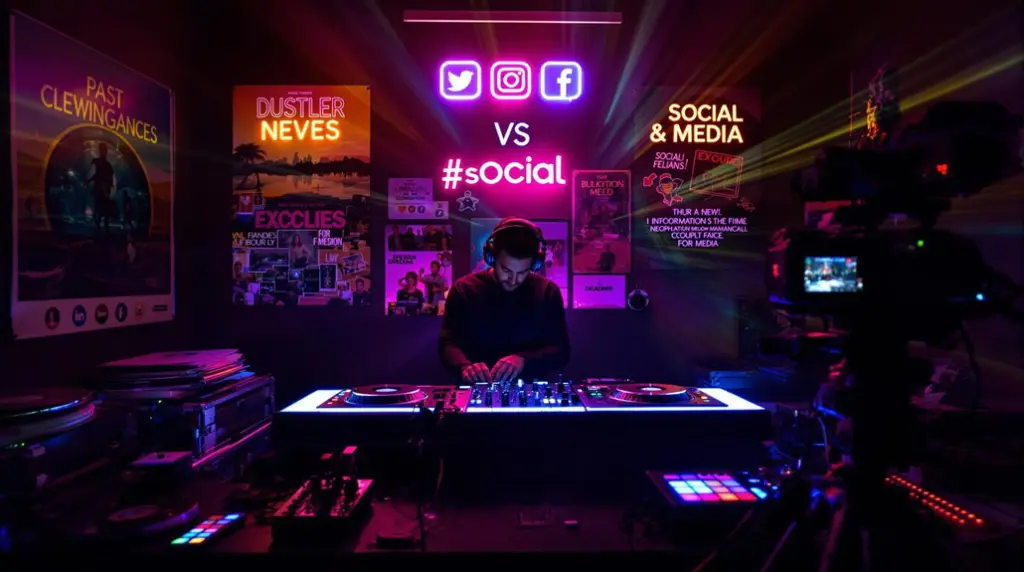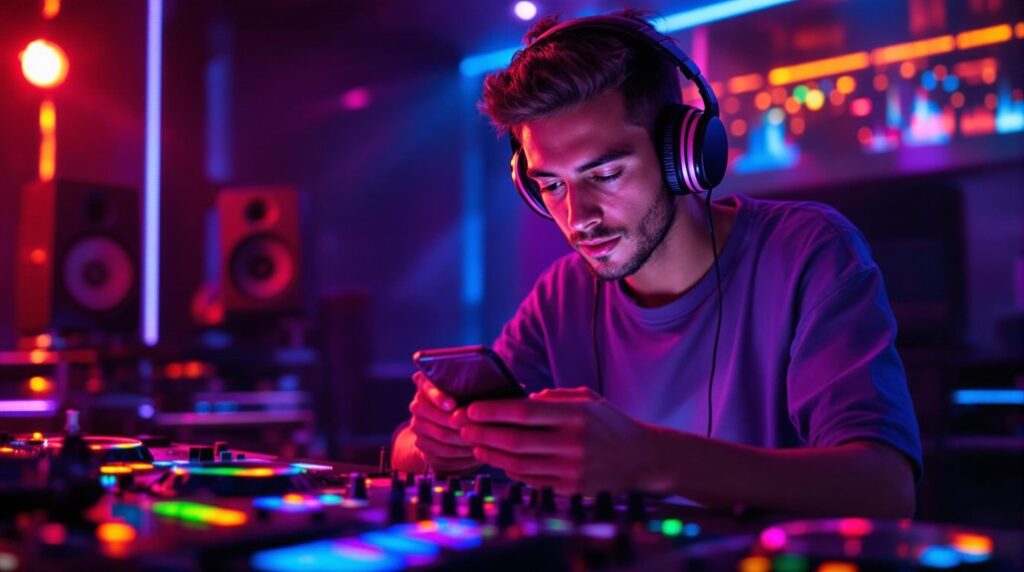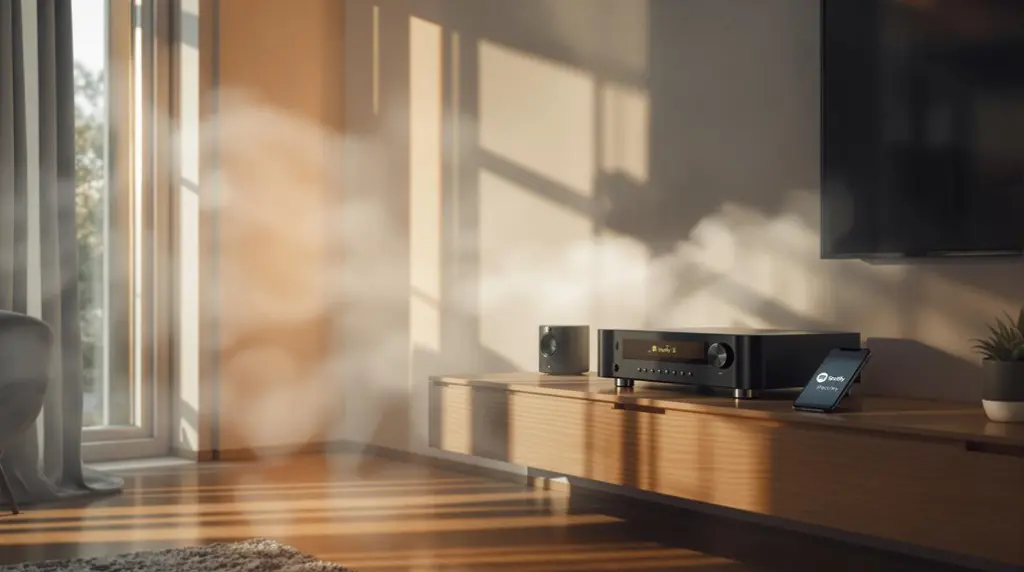As a DJ, you must obtain the right licenses for mixing copyrighted tracks. Start by securing Public Performance Licenses from PROs like ASCAP or BMI, and don’t forget Mechanical and Digital Performance Rights for reproductions and online streaming. Always consider Fair Use, ensuring your mixes are transformative and don’t harm the original work’s market value. Use only the necessary amount of the song required for your purpose. Additionally, utilize copyright-free music sources and Creative Commons tracks to minimize legal risks. Acknowledge original creators wherever possible. Staying informed about these aspects can greatly enhance your professional credibility and legal safety. Discover further insights below.
Key Takeaways
- Secure necessary licenses such as Public Performance and Synchronization for legal compliance in mixing.
- Utilize royalty-free music sources to avoid infringement issues.
- Always acknowledge original creators in your mixes to maintain transparency.
- Be proactive in understanding and applying fair use provisions to ensure transformative use.
- Keep thorough documentation of all licenses and permissions for your music mixes.
Understand Copyright Basics
To successfully mix copyrighted tracks without legal backlash, it’s important you understand the basics of copyright law. Copyright grants exclusive rights to creators over their original works, covering both the composition and sound recording. As a DJ, you must grasp these concepts to navigate the potential legal implications of your craft.
When you mix tracks, you’re dealing with two main types of rights: reproduction and performance. Ignoring these can lead to serious copyright infringement risks. For instance, using a sample without permission isn’t just unethical—it’s illegal. However, there are fair dealing exceptions and specific sampling techniques that can mitigate these risks. Fair dealing allows for limited use of copyrighted material without consent under certain conditions, such as educational purposes or news reporting, but this rarely covers DJ performances.
Understanding these legal frameworks is important. Each track’s copyright has layers—both the melody and the actual recording are protected. Mixing without proper adherence to these laws can quickly lead to legal troubles. Always make sure you’re informed about the tracks you use, how they’re copyrighted, and what rights you need to clear. This knowledge is your best defense against potential infringements.
Secure Necessary Licenses
Securing the necessary licenses is crucial when you plan to mix and perform copyrighted music publicly. Without proper licensing, you’re at risk of facing legal consequences, which can tarnish your professional reputation and lead to significant financial penalties. Here’s what you need to guarantee license compliance:
- Public Performance Licenses: Obtain these from Performing Rights Organizations (PROs) such as ASCAP or BMI. These are essential for playing copyrighted tracks during live performances.
- Mechanical Licenses: Required for reproducing and distributing copyrighted music. Agencies like The Harry Fox Agency can provide these licenses.
- Digital Performance Rights: If your sets are broadcasted online or via digital platforms, secure your licenses through organizations like SoundExchange.
- Synchronization Licenses: Necessary if you plan to sync music with video content, including streams on platforms like YouTube or Twitch.
Explore Fair Use Provisions
As you explore fair use provisions, it’s essential to understand the criteria that define this legal concept.
Knowing when and how you can legally remix copyrighted tracks is critical to avoid infringing on the rights of original creators.
We’ll examine examples of legal remixing to clarify how you can apply these rules in your DJ sets.
Understanding Fair Use Criteria
Understanding fair use criteria is essential for DJs to legally incorporate copyrighted tracks into their mixes. Section 107 of the U.S. Copyright Act outlines these provisions, but it’s crucial you grasp how they apply specifically to your work. Here are the main points to keep in mind:
- Purpose and Character of Use: Your mix should aim to be transformative, adding new expression or meaning to the original.
- Nature of the Copyrighted Work: Consider how the original work’s characteristics affect its eligibility for fair use.
- Amount Used: Use only what’s necessary for your transformative purpose.
- Effect on the Market: Make sure your mix doesn’t substitute the original work, thereby harming its market.
Examples of Legal Remixing
Let’s examine some clear examples of legal remixing under fair use provisions that you can apply in your DJ projects. Consider transformative remixes that introduce new elements or alter the original’s meaning—these not only showcase your artistic freedom but also highlight the cultural impact of your work. Remixing techniques that provide social commentary or educational insights often meet fair use criteria, especially if they don’t compete commercially with the original tracks.
Parody remixes offer a robust defense under fair use by satirizing the original while presenting a fresh message. These examples emphasize the ethical implications of remixing, ensuring you respect the original creator’s rights while innovating and educating through your music.
Recognize Different Copyright Rights
You must understand that copyright rights for musical works are divided into composition rights and sound recording rights. Identifying ownership and understanding restrictions are vital elements in maneuvering the legal landscape of DJing with copyrighted tracks. The difference lies in what each right covers and who holds these rights.
- Composition Rights: These rights refer to the musical notes and lyrics of a song. They’re often owned by the songwriter or their publisher. Through these rights, they control the use of the musical composition itself, irrespective of any recordings.
- Sound Recording Rights: These pertain to the actual recorded performance of a composition. Typically, these rights are held by the record label or the artist who recorded the track. This set of rights covers the usage of a particular recording.
When you’re planning to remix or play music publicly, you also need to take into account:
- Performance Rights: Organizations like BMI, ASCAP, and SESAC can provide you with a license for public performances.
- Mechanical and Derivative Rights: The Harry Fox Agency can issue mechanical licenses, while copyright owners must directly authorize derivative works such as remixes and mashups.
Handling these rights properly ensures legal compliance and respect for original creators.
Use Copyright-Free Music Sources
You’ll find that exploring royalty-free libraries and using platforms like Creative Commons can greatly ease your legal concerns while DJing. These sources not only comply with copyright laws but also enhance your mix with a diverse range of tracks.
It’s important to understand the benefits and adhere to the guidelines set by these free music sources to avoid any potential legal issues.
Exploring Royalty-Free Libraries
Exploring royalty-free libraries offers DJs a legal pathway to access diverse music genres and styles for their mixes. You’ll find that these libraries not only provide a broad genre variety but also maintain high music quality suited for professional use. By purchasing a license, you pay a one-time fee, making this a cost-effective option compared to ongoing royalty payments.
Key considerations include:
- Licensing Options: Choose licenses that best suit your performance needs.
- Music Quality: Expect high-quality tracks designed for DJ use.
- Cost Comparison: A one-time fee often proves more economical.
- Genre Variety: Access a wide range of music styles to enhance your mixes.
This strategic choice guarantees you stay on the right side of the law while keeping your sets fresh and engaging.
Benefits of Creative Commons
Leveraging Creative Commons licenses offers DJs unparalleled freedom to use diverse tracks without legal constraints. These licenses not only shield you from copyright issues but also enhance your mix with a broad variety of sounds. Platforms like SoundCloud and Bandcamp allow you to access music specifically released under various Creative Commons agreements, each defining clear usage rights.
However, be wary of common misconceptions. Not all Creative Commons music is free for any use; some licenses require attribution or forbid commercial use. Understanding the specific limitations of Creative Commons can save you from legal pitfalls. Explore reputable sources like Free Music Archive and Jamendo to confidently enrich your sets, knowing you’re fully compliant with copyright laws.
Handle Copyright Claims Effectively
Understand the process of effectively handling copyright claims to safeguard your DJ mixes. When you receive a copyright claim, it’s important to act swiftly and knowledgeably to minimize potential copyright infringement consequences. Understanding fair use applications can also be critical in defending your creative choices.
Here are key steps to manage copyright claims efficiently:
- Consult Legal Experts: Seek advice from copyright professionals who can provide specific guidance and strategic defense options tailored to your situation.
- Maintain Documentation: Always keep detailed records of all licenses, permissions, and agreements related to your music. This documentation is essential in resolving disputes.
- Understand Your Rights: Educate yourself about your legal rights and the scope of copyright laws. Knowing what constitutes fair use can greatly influence the outcome of a claim.
- Respond Promptly: Address copyright claims as soon as you receive them. Delaying your response can complicate matters and potentially worsen the situation.
Implement Content ID Awareness
As a DJ, it’s important to be aware of Content ID systems to navigate the complexities of using copyrighted music in your mixes effectively. Content ID is a digital fingerprinting technology employed by online platforms like YouTube to monitor and manage the use of copyrighted content. This system can automatically identify copyrighted music within your uploaded mixes, which can lead to either restrictions or mandatory revenue sharing.
Understanding the implications of Content ID is vital for you. It’s your responsibility to make sure that your use of copyrighted tracks complies with the platform’s policies to avoid potential legal issues. YouTube, for instance, empowers rights holders to dictate how their music is utilized on the platform, ranging from blocking the content to monetizing it by placing ads.
Being knowledgeable about Content ID not only helps you avoid copyright infringement claims but also guides you in making informed decisions about where and how to share your mixes online. By staying informed, you can strategize your uploads to minimize conflicts and harness the system for mutual benefit, ensuring your creative output is both lawful and profitable.
As a DJ, it’s essential you grasp the specifics of performance licenses when streaming or broadcasting digitally. You’re responsible for securing the right licenses from organizations like Sound Exchange to cover your performances.
Additionally, make sure you’re reporting your playlists accurately to guarantee compliance and avoid potential legal issues.
Understanding Performance Licenses
To legally play copyrighted tracks during live performances, DJs must secure performance licenses that address digital performance rights. Understanding and adhering to these licensing requirements is vital to meet your legal obligations and guarantee copyright compliance.
Here’s what you need to know:
- Performance licenses are mandatory for playing copyrighted music.
- Digital performance rights need special attention, as they cover digital formats.
- Organizations like Sound Exchange manage these specific rights.
- Acquiring the proper licenses shields you from potential legal issues.
Don’t risk your career by overlooking these essentials. Stay informed and proactive about your performance rights to ensure all your sets aren’t only spectacular but also fully compliant.
Reporting Your Playlists
When you report your playlists to organizations like BMI, ASCAP, or SESAC, you guarantee that artists are fairly compensated for the use of their music. This step is vital in managing digital performance rights effectively. By engaging in accurate playlist tracking and royalty reporting, you’re not only complying with copyright laws but also ensuring proper royalty distribution.
Here’s a breakdown of why reporting is essential:
| Aspect | Importance |
|---|---|
| Copyright Compliance | Avoids legal issues and supports music rights |
| Royalty Distribution | Ensures artists are paid for their work |
| Playlist Tracking | Assists in accurate royalty calculation |
| Legal Safety | Protects you from potential fines |
Acknowledge Original Creators
Acknowledging the original creators of copyrighted tracks in your DJ mixes not only demonstrates respect but also helps you avoid legal complications. Attribution importance and ethical conduct are foundational to building a respectable reputation within the DJ community. By providing respectful recognition and proper credit to the artists and producers, you’re not just complying with legal standards; you’re also promoting a culture of transparency and professionalism.
Consider these benefits of acknowledging original creators:
- Respect for Intellectual Property: You honor the creative efforts of artists and contribute to a culture of respect within the music industry.
- Avoidance of Legal Issues: Properly crediting original creators can shield you from potential copyright infringement claims.
- Enhanced Audience Engagement: When you inform your audience about the tracks and their artists, you help them discover new music and encourage support for those artists.
- Professionalism in Performances: Transparency in your sources boosts your standing as a professional who values integrity in entertainment.
Consider Legal Advice
Seeking legal advice is essential for DJs to clearly understand their rights and obligations when mixing copyrighted tracks. By engaging in legal consultations, you’ll gain invaluable copyright education directly from experts in the field. This guidance is vital, not just for adhering to the law but for strategizing your career moves in the music industry.
Consulting with a music attorney will provide you with insight into the specific copyright laws that apply to DJ mixes. This isn’t just about knowing what you can’t do; it’s about understanding how you can legally use copyrighted materials to enhance your performances without stepping over legal boundaries. You’ll learn about licensing requirements and the principles of fair use, which are central to performing legally.
Moreover, professional legal guidance can help you develop compliance strategies that keep your performances within legal limits. Attorneys can offer tailored licensing tips that align with your artistic vision and performance style. This proactive approach not only protects you from potential legal consequences but also builds your reputation as a professional who respects the creative rights of others.
Frequently Asked Questions
How Do DJS Avoid Copyright Infringement?
To avoid copyright infringement, you’ll need to secure proper licenses for the tracks you use. Relying on fair use arguments is risky. Make sure your platforms have licensing agreements that cover your activities.
Can You Play Copyrighted Music as a Dj?
You can play copyrighted music as a DJ if the venue has the necessary public performance licenses. Always make sure you’re legally covered to avoid infringement issues during your performances.
Do DJS Have to Pay Copyright?
Yes, you typically need to pay performance royalties through license agreements to legally play copyrighted music in public as a DJ. This guarantees compliance with copyright laws and protects artists’ rights.
Where Can I Post My DJ Mixes Without Copyright?
You can post your DJ mixes on Mixcloud, which legally secures music rights, avoiding the strict copyright policies you’d face on SoundCloud. This guarantees your work stays up without legal hassles.
Conclusion
As a DJ, it’s important to grasp copyright laws to protect your craft and respect others’ work. Make sure you’ve secured the necessary licenses and understand the fair use provisions.
Utilize copyright-free music sources and be mindful of digital performance rights. Always credit original creators and stay informed with Content ID systems.
If you find yourself in murky waters, don’t hesitate to seek professional legal advice. Stay legal, stay creative, and keep the beats going!




